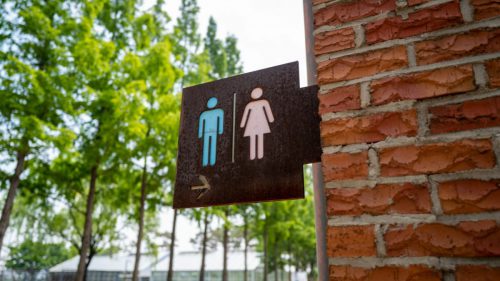

BreakPoint
Apply today for the 2007 Centurions Program and study Biblical worldview for a year with Chuck Colson! Deadline for applications is November 30.
David W. Chen, “New Jersey Court Backs Rights for Same-Sex Unions,” New York Times, 25 October 2006. (Archived article; costs $4.95 to retrieve.)
“Lewis v. Harris: New Jersey Court Rules That Same-Sex Couples Must Receive the Same Rights and Benefits as Opposite-Sex Couples,” Human Rights Campaign frequently asked questions.
William F. Buckley, “Gay Impasse,” Real Clear Politics, 28 October 2006.
Maggie Gallagher, “NJ Poll: Majority Reject Gay Marriage,” Marriage Debate, 3 November 2006.
Travis McSherley, “Marriage, or Something Like It,” The Point, 26 October 2006.
Travis McSherley, “Protecting Marriage, One State at a Time,” The Point, 19 October 2006.
Learn more about the marriage debate.
BreakPoint Commentary No. 061101, “Is It a Sin Not to Vote?: Christians in the Public Square.”
BreakPoint Commentary No. 061102, “Nobody’s Perfect: Purists and Politics.”
Trenton Makes Mischief
Much of the immediate reaction to the New Jersey Supreme Court’s decision holding civil unions constitutional, but leaving the question of calling it “marriage” to the legislature, was along the lines of, “Well, it could have been worse.” I don’t think so. The case originated in 2002 when seven same-sex couples filed suit after they had been denied marriage licenses in various municipalities. They claimed that the denial violated the equal protection clause of the New Jersey state constitution. Just a week ago, the New Jersey Supreme Court unanimously agreed with them. Like the Massachusetts court three years ago, it ruled that the “unequal dispensation of rights and benefits to committed same-sex couples can no longer be tolerated under our State Constitution.” However, unlike the Massachusetts court, the New Jersey court, by a 4-to-3 margin, declined to find “that a fundamental right to same-sex marriage exists in [New Jersey].” Instead, it left it up to the legislature to “decide” what to call the new “dispensation of rights and benefits.” Within 180 days, legislators must write and re-write New Jersey law in areas like “tuition assistance, survivors’ benefits under workers’ compensation laws and spousal privilege in criminal trials.” Many commentators hailed the rulings as a “compromise” that “reflected” the opinion of the people of New Jersey. But wait a minute. It’s the legislature, not the courts, that should reflect the people’s opinions. This court, like courts all across America, is simply usurping the people’s right of self-government. Even worse than the un-democratic nature of the ruling is what it does to marriage. The process by which the court arrived at its so-called “compromise” reminded me of arguably the most famous phrase of the Vietnam era: We had to destroy the village in order to save it. The price paid to limit the word marriage to one man and one woman was the unique and privileged status of traditional marriage in New Jersey. Gone is the recognition of traditional marriage as a “pre-political” institution that pre-dates and takes priority over the state. Now, it is just one social arrangement among many. And gone is the notion that the preferential “dispensation of rights and benefits” under discussion is an acknowledgment of the centrality and importance of traditional marriage. Now, it is simply a kind of governmental largesse that the government must distribute equally. After the court was through, all that was left of traditional marriage was the word itself. Now, bear this in mind as you go to the polls next Tuesday. I don’t endorse candidates or parties, but we ought to look at where candidates stand on protecting traditional marriage and, as is the role of the Senate, confirming the kind of judges who will interpret the law, not make it. If you were even thinking of staying home, just remember what happened in New Jersey. We have a duty to vote for righteous as well as able men and women. And if you’re in a state like Virginia or Wisconsin or Colorado, where there are referendums on the ballot to protect traditional marriage, you not only need to vote, you need to take your neighbors with you to do the same.
| For Further Reading and Information |
11/3/06















